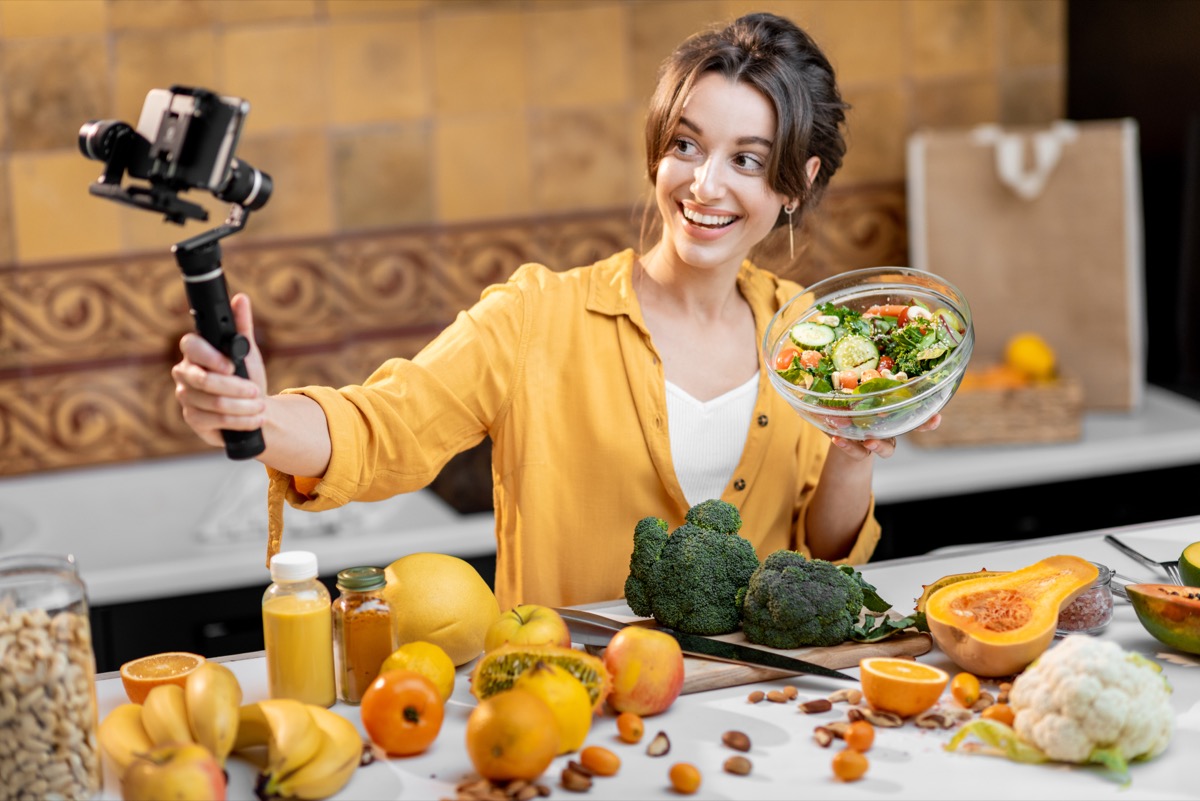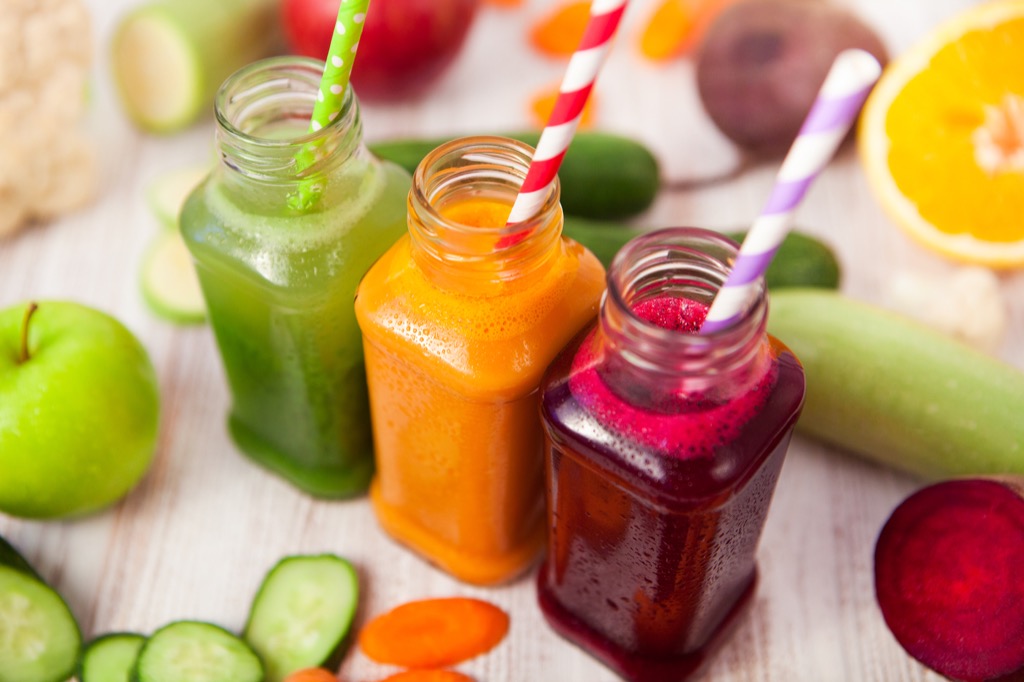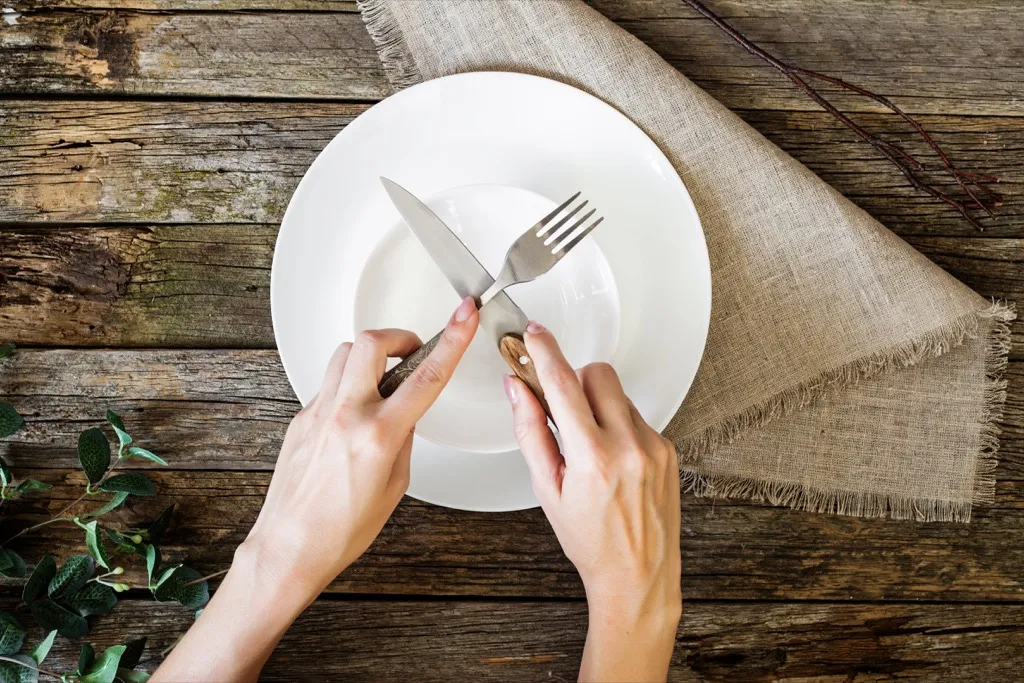Leading up to and following the new year, the internet is typically abuzz with diet and weight loss advice. Some diet trends will gain traction on social media, however, many of these supposed wellness plans will rise to fame while lacking evidential support—and even basic safety.
“What’s dangerous about getting your information off of TikTok is the fact that you’re trusting a random user,” explains Amy Lee, MD, an internal medicine specialist and head of nutrition for Nucific. “They don’t necessarily have any sort of medical degree, experience, or background in nutrition, yet they’re offering a blanket of advice to users and stating it will help them.”
To this point, Lee shared with Best Life the four diet trends she’d always avoid.
RELATED: The 5 Most Popular Diets in the U.S.—And Which One Is Most Effective.


One common diet trend is for TikTok users to show what they eat in a day. While it can be helpful to see a healthy template for eating, some influencers glorify disordered eating habits under the guise of wellness. Others will highlight more indulgent foods that they don’t actually eat on a regular basis.
“While these posts can sometimes help people with their relationship with food, it can also be damaging,” says Lee. “Some users are shown eating under 1,000 calories a day and doing what users call ‘body checks’ where they show how skinny or fit they look ahead of showing their food. Everyone’s body is different and has different needs.”


The “WaterTok” hashtag has garnered over one billion views, making it one of the most popular food trends to hit the platform in recent months. In these videos, users share their recipes for sprucing up plain water with flavor packets, syrups, flavored ice, and more.
“This trend is dangerous because users need more than just 30 seconds of information on how they can focus on getting more ‘flavored water’ in,” explains Lee. “I think the act of drinking more water is great, but people need to be sure they aren’t just replacing sugary sodas with sugar-filled water flavor packets.”
Lee adds that when taken to extremes, the trend can also be dangerous because it can cause some people to overhydrate.
To embrace the trend without adding sugar or artificial sweeteners or flavors to your diet, try infusing your water with fresh fruit or herbs.
RELATED: Mom Who Lost 87 Pounds in One Year Shares Her 5 Steps to Permanent Weight Loss.


Cleanses are another diet trend that Lee wishes would fall by the wayside in 2024.
“Most cleanses are marketed to users to help them drop weight quick. And while you might see the number on the scale go down, it’s likely water weight and will spike right back up after you begin eating again,” she explains. “This not only creates a bad relationship with food but also has a yo-yo diet effect.”


If you’re overweight, restricting your calorie intake to the recommended range and focusing on eating whole foods can help you lower your weight and improve your health. However, diets that suggest extreme calorie restriction are both dubious and dangerous, Lee says.
“Any recommendations that lower one’s calories to an extremely low level can be dangerous and damaging to the body, which is why it’s important to consult with a doctor, and not just one on TikTok,” Lee explains.
“Something more effective to aid in weight loss and eating healthier is fixing your gut health,” she notes. In particular, she suggests trying probiotics, which she says “can help repair your gut health by nourishing the good bacteria in your gut and make you less prone to having cravings for sweet, sugar, and salty foods.”
RELATED: Certain Foods Trigger Natural Ozempic-Like Weight Loss Effect, Doctor Says.


Lee says that if you find yourself turning to TikTok for drastic diet advice, this may be a sign that it’s time to heal your damaged relationship with food.
“Ask the question of why you feel you need to change your lifestyle and realistically understand the reasons,” she says. “Find the right people to partner up with or legitimate information that has credibility. Also, I think most of us could benefit from professional help—a registered dietitian, certified nutritionist, and even a therapist to discuss personal attitudes and perceptions to eating, disorderly eating, and even drinking.”
For more health advice sent directly to your inbox, sign up for our daily newsletter.